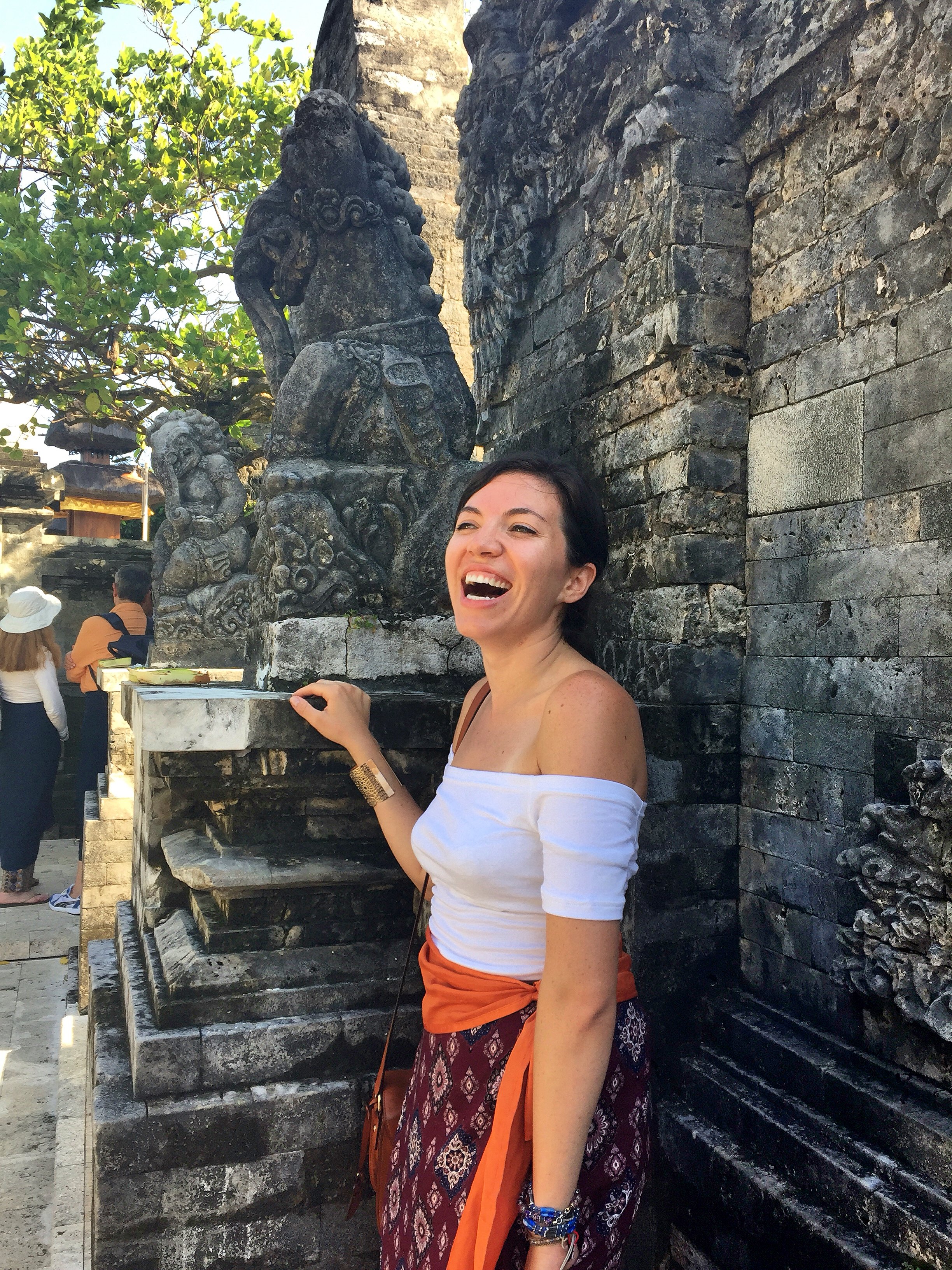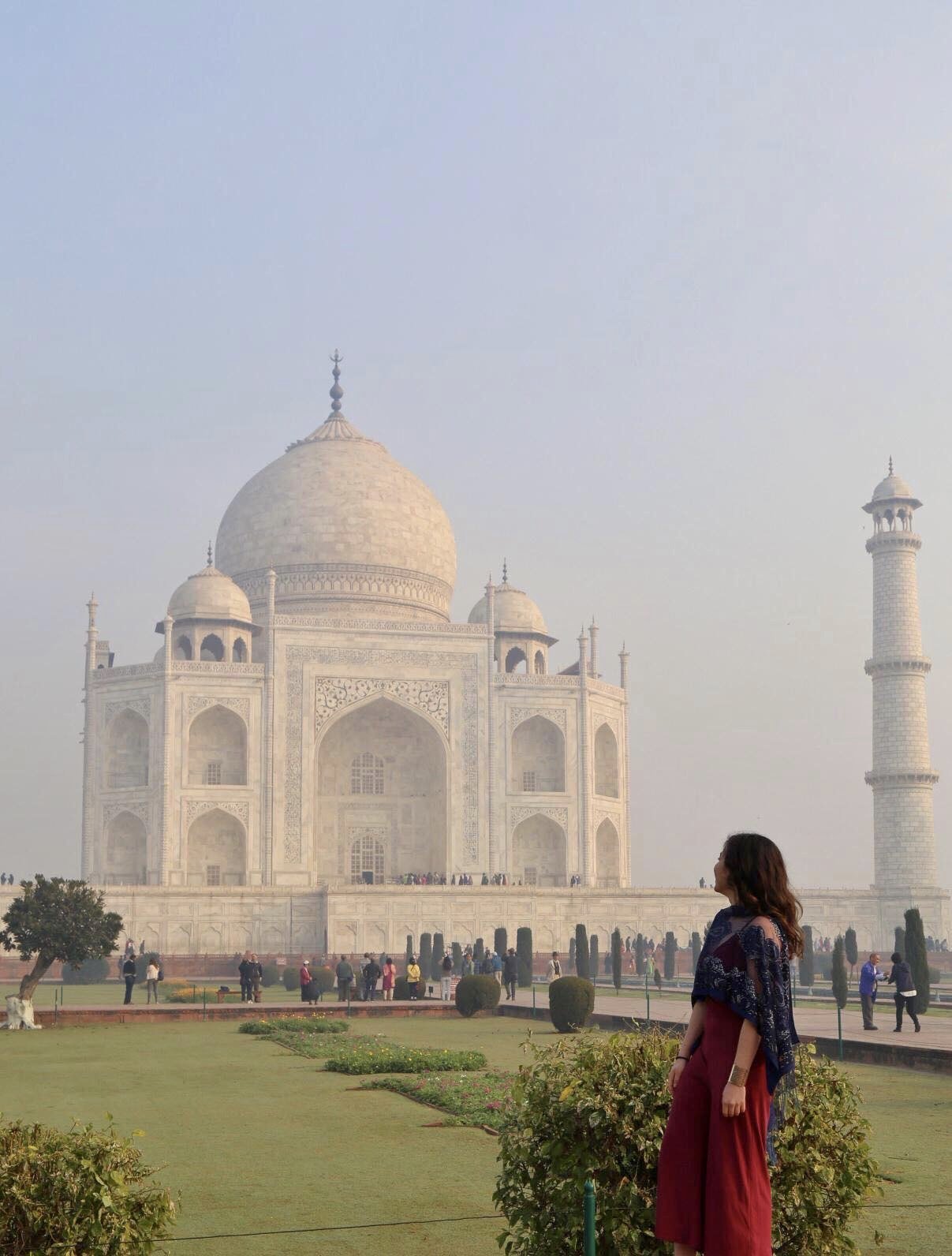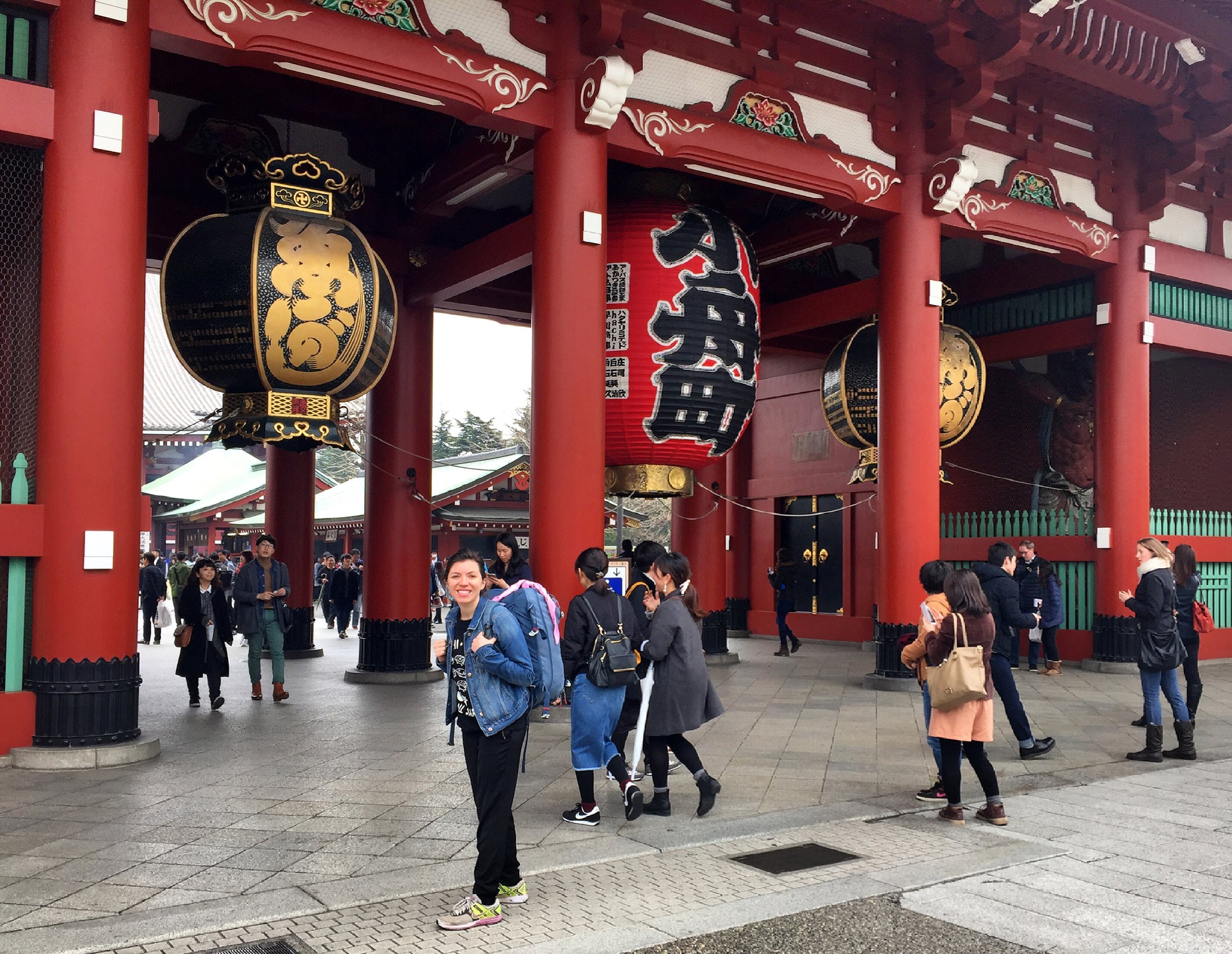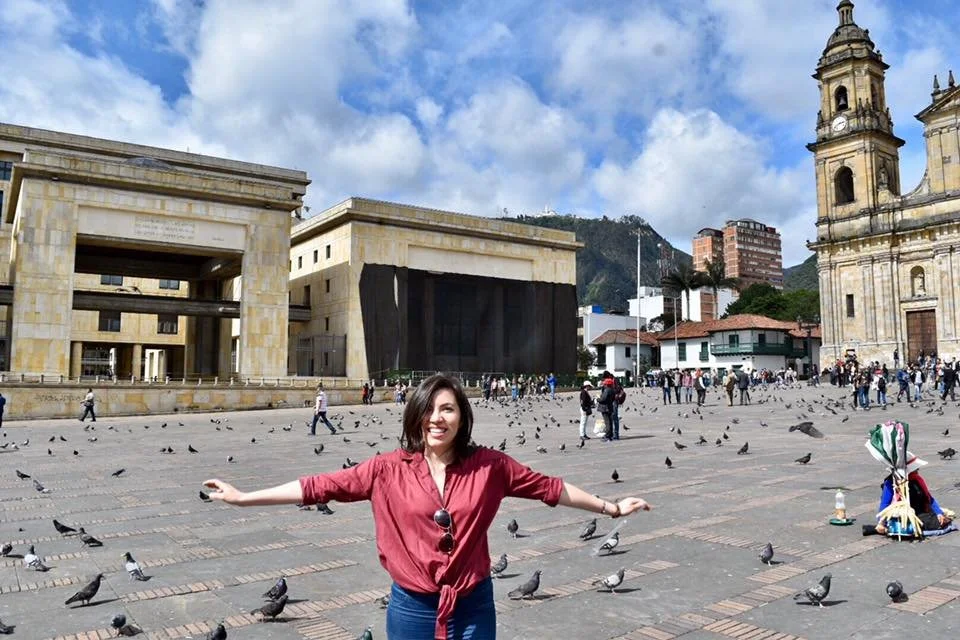Viajera Spotlight: Nikki Vargas, Author of “Call You When I Land”
By: Cindy Medina
“Call You When I Land” begins with Nikki walking through Iguaçu National Park in between Brazil and Argentina. It is at this picturesque location that she vocalizes a profound realization, declaring, "I don't want to get married!" This poignant moment immediately piqued my interest, setting the stage for a memoir that is as captivating as it is introspective. In this compelling narrative, the author guides us through the various chapters of her life. From navigating life in her early 20s in New York City to calling off her wedding mere weeks before marrying and through the highs and lows of her journalism career. Nikki's writing is not just a conveyance of events but a vivid and descriptive journey that allows readers to vicariously experience her travels. From the vibrant streets of Colombia to the serene landscapes of Vietnam and the captivating allure of Argentina, the author's narrative prowess brings these diverse locales to life. “Call You When I Land” was named one of the best women’s memoirs of 2023 by Glamour Magazine and is a Staff Pick favorite by Apple Books.
We chatted with Nikki about her new memoir, which I recommend for every traveler to read!
TL: What inspired you to write this book?
Nikki: One of my favorite genres of books is women's memoirs, especially memoirs written by everyday women. What all of these books have in common is how the authors have the courage to show us their vulnerability. Their evolution becomes our inspiration, and their stories become our stories. Growing up, I clung to memoirs like these, seeing myself in the women and finding permission to make mistakes, change course, and evolve in my own life. My twenties were a beautiful and transformative time, and I wanted my memoir, CALL YOU WHEN I LAND, to not only honor that period of my life but to inspire readers the way these women’s memoirs continue to inspire me.
TL: How did you come up with the title? What significance does it hold?
Nikki: I always knew I wanted my book to be titled something that made it obvious the book is rooted in travel. My original title was “Shifted in Flight,” inspired by the in-flight announcement about being careful when opening overhead bins because “baggage may have shifted in flight.” I loved this idea for a title because I felt it spoke to how things move and shift during a journey, but after some debate with my publisher, we felt that we could come up with a better title. After going back and forth for a while, I was chatting with my now husband when the idea for “Call You When I Land,” came up. This title spoke to me because not only is it a nod to the tradition of telling my loved ones I’d be in touch after a flight, but it speaks to the book being about my figuring everything out and getting in touch with the people I care about after I landed on the woman I’m meant to become.
TL: You shared very vulnerable moments about your 20’s which I think will be relatable to many women. Moments such as falling in and out of love, infidelity, navigating life post college, traveling to escape reality, career changes and failures. Did you ever have doubts about sharing those moments with the world? What was your process like to be able to write from a sincere and transparent place?
Nikki: Absolutely! It is a terrifying task to reveal your flaws, vulnerabilities, insecurities, and mistakes with complete strangers who will ultimately take my story and do what they want with it. But, when writing the book I came across a quote that reads: “Write it like no one is ever going to read it. That’s how you write something worth reading. An approximation of honesty won’t make the cut.” I internalized these words because when I think of the memoirs I admire, it is their unapologetic honesty that makes them timeless. I knew in writing CALL YOU WHEN I LAND that I wanted to show the reader the worst of me so they could come to appreciate the best of me. And so, much like that quote suggests, I wrote my memoir as though no one would read it.
Photos: Nikki in Indonesia, India, Japan, and France
TL: In your book you share about traveling to your homeland, Colombia. How has traveling to your homeland and connecting to your roots impacted your self-identity? Would you say you relate to the saying, “ni de aquí ni de allá?”
Nikki: Growing up, I always felt this nebulous attachment to my Colombian heritage. It was this intangible thing that was very present throughout my childhood and yet felt very distant. I remember I desperately wanted to feel Colombian, sound Colombian, and look Colombian but ultimately felt so unColombian that it felt hard to claim the heritage as my own. It wasn’t until I became an adult, flew back to Colombia, and took the time to learn about my culture and history that I allowed myself to claim that identity, realizing that there is no one way to look, sound, or be Colombian. Being Colombian is my birthright, from the moment I took my first breath in Bogotá, I already was Colombian. It just took me some time to allow myself to embrace that.
TL: Which was the hardest part to write about in your memoir?
Nikki: While many assume the hardest part of my memoir to write was my decision to call off my wedding, that’s actually not the case. My decision to run away from my wedding happened more than 10 years ago, giving me ample time to process what happened, why I couldn’t confront myself sooner, and to appreciate how that choice set my life on track. The hardest part of my memoir to write was the rise and fall of Unearth Women magazine, the publication I started back in 2018. Not only does Unearth Women’s meteoric rise from an idea to a women’s travel magazine sold in over 800 bookstores still feel present, but the folding of the magazine after just four issues still stings to think about. In some ways, I’m still processing that career failure and grappling with what it all meant to rise so high and fall so fast, which made those chapters more difficult to pen.
TL: Do you have a favorite scene or chapter in the book?
Nikki: I do! In the chapter “Roots & Wings,” I describe the moment I decided to run away to the jungles of Argentina and call off my wedding, which at that point was a week away. It’s a very dramatic moment but ultimately one that is inspiring. The first few chapters of the book find me making all the wrong decisions, ultimately avoiding myself and my choices in lieu of running away and losing myself to travel. By the time the “Roots & Wings” chapter comes, I’ve finally reached the end of the line where I am out of time and can no longer avoid the fact that I’m due to walk down that aisle. What I love about this chapter is how it becomes the moment I stop running and finally confront myself, allowing myself to take back control of my life and finally grow up.
TL: Being Colombiana yourself, are there any Latina writers that have inspired your writing?
Nikki: I really enjoyed Elizabeth Acevedo’s novel, “Family Lore,” which I think weaves a beautiful story of family, mortality, and identity, capturing the energy of New York City and Santo Domingo.
“Being Colombian is my birthright, from the moment I took my first breath in Bogotá, I already was Colombian. It just took me some time to allow myself to embrace that”
Nikki in Bogotá, Colombia
TL: What advice do you have for aspiring travel writers and creators? In particular, for women of color.
Nikki: One of the best pieces of advice given to me is to write what you know. Whether it’s a freelance article, a blog post, or a novel, when you write what you know, you bring something unique to the table that no one else can mirror. For women of color, I think this is especially important. To write about your experiences, your emotions, your history, your evolution is a story no one else can tell.





